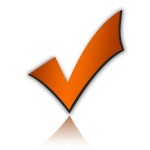 Many interviewers now use behavioural interview questions.
Many interviewers now use behavioural interview questions.
The premise behind asking behavioural interview questions is that your past behaviour is a good predictor of your future behaviour.
In this post I am going to give you 88 different behavioural interview questions. But don’t just read this post in isolation. If you’d like to get the most value out of this post and succeed in interview there are two things you also need to do.
1) Read this post I wrote a while back on behavioural interview questions and how to handle them.
2)Â Get the free copy of Impressive Interview’s e-book: The Seven Deadly Sins To Avoid At Job Interviews. It’s at the bottom of the interview questions listed on this post.
This book is by one of Australia’s top interview coaches, Deborah Barit. Deborah will give you great tips on preparing for interviews and a technique for predicting the questions that come up.
However before I list the interview questions, I need to tell you how to spot a behavioural interview question.
Read on….
How to determine if a job interview question is a behavioural question?
Behavioural interview questions typically start with tell me about a time, tell me about a situation, or give me an example.
The interviewer may also give you a scenario in a question and ask you to describe the steps you took to manage that situation.
When they ask each question the interviewer will generally have a competency they want to evaluate. They’ll look at the actions or behaviours you demonstrate when you answer the question.
I have grouped the questions underneath the high level competency the interviewer is expecting you to demonstrate.
Off you go and read now, and best of luck with your next interview.
Customer or client orientation job interview questions
- Describe a time where you have gone out of your way to help a customer. What did you do and what was the result?
- In any role you can have people you don’t want to deal with. Describe your worst example of this and how you managed that person.
- Tell me about a time where a customer did not accept the information you were providing and you needed to explain it in different terms.
- How have you ensured that your team or direct reports have managed to keep delivering high levels of customer service in challenging circumstances? Please provide an example.
- Give me an example of a time where you have needed to ensure that the organisation kept focussed on a particular customer. Why was that necessary? What steps did you take?
- Describe a time where you took over a difficult client. What did you do to ensure the relationship ran smoothly? What made a difference in this circumstance?
- Give me an example of where you have needed to say no to a customer. How did you do this, and still maintain a positive relationship?
- Have you ever had a client change their mind during a negotiation around a service you provide? What did you do to handle this situation?
- How do you determine whether a team member has client orientation? Provide an example of this.
 Communication job interview questions
Communication job interview questions
- Tell me about a time when you needed to persuade someone to do something that they did not want to do? How did you go about this?
- Describe the most difficult communication you have needed to deliver to an inattentive audience. What did you do to prepare for this?
- In any role you have people you would rather not work with because their way of communicating is different to yours, or they’re known to be difficult. Provide an example of a time where you have encountered this.
- Describe your decision making process when you choose to communicate via the phone, email or face to face?
- What do you think are the characteristics of a really effective communicator? When have you won an audience?
- Have you ever thought that people have not listened to you? What did you do in this situation?
- Tell me about a time where you have needed to sell an idea to your colleagues? How did you approach this?
- How would you describe your written communication style? Have you ever had to sell an idea through written words alone?
- Describe an idea that you’ve needed to sell upwards. How did you go about this? What was the result?
- What was the most protracted negotiation you have managed? Describe a situation where you have needed to use many different tactics or techniques to overcome objections or obstacles?
- Have you ever given an impromptu presentation? How did that go?
- What are the elements of successful presentations? Describe one you have given. How did you know that you were effective in your communication?
- How do you know that you are a good communicator? Give an example of how you determine this?
- Provide an example of a situation when someone brought you a new idea that was odd or unusual and you did not want them to implement it. What did you do?
Analytical or problem solving job interview questions
- Describe a time where you needed to research a problem and come up with different alternatives to resolve it. How did you determine the most appropriate solution?
- Tell me about a time where you encountered something new and needed to work backwards from the end point
- What’s the best idea you have ever had and successfully implemented?
- Talk about a project did not go as planned? What did you do to rectify it?
- Tell me about a time where you needed to consult several different groups to come up with an answer to an issue? What was the outcome?
- What’s the most challenging workplace problem that you’ve encountered? What did you do to come up with a solution?
- If you inherited a team that you sensed was not performing optimally, what would you do to begin to solve the problem? Provide a case study to illustrate where you have done this.
- Describe the steps you normally take to make a decision. Tell us about a time where this did not result in the answer you anticipated and how you handled that.
- How do you assess the quality of decisions or recommendations that other people present to you? Provide an example?
- Describe a time where you needed to choose between a number of ideas? What criteria did you use?
 Leadership job interview questions
Leadership job interview questions
- Describe the most challenging group you have needed to manage. What did you do to get the results you needed from the group? What was the result?
- What do you think it takes to be a truly effective leader? Provide an example of where you have demonstrated this.
- Leadership can sometimes be about being unpopular. When have you been unpopular? Why?
- Tell me about a time when you have needed to lead a group of peers. What did you do in this situation?
- Do you think leaders are born or made? What’s made you an effective leader?
- Give an example of where you have had someone challenge your authority or ability to lead. What did you do in this situation?
- Describe a time where you needed to juggle your own commitments with your leadership responsibilities. What did you do?
- Give an example of a time where you have needed to manage in a time of uncertainty, either restructuring, redundancies or a time where there has been a merge of organisations.
- What do you use as an indicator that people follow you? Provide an example.
- Describe an obstacle you have had in becoming a leader? What did you do?
- Tell me about a leadership role that you have had that was not part of your formal work, perhaps in the community or in sport. What approach did you take? Why did you commit your time to this?
- Who do you admire as a leader and what lessons have you learned and applied from this example?
- You have two team members having dispute. How do you ensure that you come up with a solution that is fair to all? Provide an example.
- In any team you have people that do not perform. Describe the toughest person you have had to manage where it ultimately led to that person leaving. How did you handle this situation?
Goal orientation job interview questions
- Describe a goal that you have achieved that has made you proud. Why was this important to you? What steps did you take to achieve your goal?
- Tell me about a time where you did not succeed at something?
- Many times in our lives we will have situations where we feel like we’re juggling too much. Describe a time where you have thought this. What did you do and what was the result?
- How do you keep track of multiple priorities and still focus on quality. Describe a time when you did this.
- What’s the worst setback you have encountered in your work? What did you do in this circumstance? How did you manage this situation? What did you learn?
- Describe a time where you ensured that others keep focussed on short, medium or long term goals? Is there anything you did to keep them focussed? How did this turn out?
- Describe a project you have managed where you needed to ensure others met their milestones or targets.
 Attention to detail job interview questions
Attention to detail job interview questions
- Describe a time where you made a mistake in your work. How did you find the mistake?
- What tools do you use to check your work? Why do you use these tools? Provide an example of where you have applied these.
- How do you go about ensuring quality when there are time pressures? Describe a time where you have managed to produce quality work when you were under pressure.
- Describe a time where you found an error that was not immediately obvious.
- Have you ever discovered a mistake that was overlooked by everyone else? How did you find this? What was the result?
- Tell me about a time that you were confused by a customer’s request. What steps did you take to clarify things?
- Have you ever needed to persuade someone above you that they had made a mistake? What did you do in this situation? How did it turn out?
Resilience and adaptability job interview questions
- Tell me about the most stressful situation you have found yourself in at work. What did you do in this situation?
- Describe a situation where you believed others were putting pressure on you. What did you do to manage this?
- How do you ensure that your colleagues or direct reports do not feel too much pressure? Provide an example.
- What’s the most difficult transition you have needed to make in your career?
- Have you ever been in a situation where you needed to adjust to changes that were outside your influence or control?
- Tell me about a time when you had to adjust to someone’s way of working to achieve a goal or complete a project?
Creativity and initiative job interview questions
- Describe an idea that you have conceived, implemented and evaluated?
- How do you determine whether ideas are worth pursuing? Provide an example.
- Give an example of a time where you needed to “think outside the square” to come up with a solution to a challenging problem.
- What’s the best way to inspire creativity in your team? Tell me about a time when you’ve done this.
- When have you brought an innovative idea into your organisation? What did you do to ensure it was successful? How was it received?
Honesty and integrity job interview questions
- Describe a time where you saw someone doing something that did not meet company standards. What did you do? What was the outcome?
- What values do you use to guide your work? Describe a time where these were challenged.
- Describe a time in your career where you thought that complete honesty was not the right thing to do? Why did you think this? What did you do?
- We all have times where we are asked to implement policies that we do not agree with. What have you done in this situation?
 Planning and project management job interview questions
Planning and project management job interview questions
- Describe the most challenging project you have planned, where you needed to juggle the needs of multiple stakeholders. What did you do?
- Describe a project you’ve managed where things did not go to plan. How did you handle it? What was the result?
- What tools or techniques do you use to manage your time? How do you prioritize projects? Provide an example when it was difficult to do this.
- In any project there are times that you will find that people lose focus of the objective. Can you describe a time this has happened to you and what you did about it?
Judgement and decision making job interview questions
- In many cases you need to “make a call” when you have incomplete information. Describe one of these and how you approached it.
- Describe the toughest decision you have needed to make at work. Why was it tough? What did you do to make that decision?
- Give me an example of a decision you needed to make quickly and on your own?
- Provide an example of a decision that you made that you now realise was a poor decision. What happened? What did you do?
- Describe a recent unpopular decision you made. How was it received? How did you handle it?
Team work job interview questions
- Tell me about a time where others you were working with on a project disagreed with your ideas, yet you needed to work with them all? What did you do?
- Give me an example when you worked with a colleague who was not doing their share of the work. How did you handle it?
- We have all had times where we’ve worked in teams that did not get along. Describe a time this has happened to you. What happened? What role did you take? What was the result?
That’s the end of my question list. I’d love to hear the questions that made you fumble the most, or if you’re an interviewer, the questions you like to ask.
Need to get ahead of the pack for your next interview?
Get our free e-book The 7 Deadly Sins to Avoid at Job Interview!
Deborah Barit wrote this book. She is one of Australia’s leading interview coaches. It is packed full of easily actionable interview tips.

To get your free e-book and some of our best interview tips direct to your inbox, simply click on this link.
Here’s what happy readers said about the e-book and interview tips:
“Deborah Barit is a very smart lady…She is good at figuring out what an employer is looking for. It’s like she has ESP, with her help in preparing, I found no surprises in a recent interview and I was prepared for every question….” Cathy, Leichhardt, NSW
Because I read so many of your posts, I feel as if you were my personal employment coach. I start my new position in two weeks. I had so many obstacles to overcome and each day you posted a solution to my dilemma and how to improve my search. Thank you so much for your input and PLEASE continue to do what you do!

 Follow
Follow
{ 0 comments… add one now }